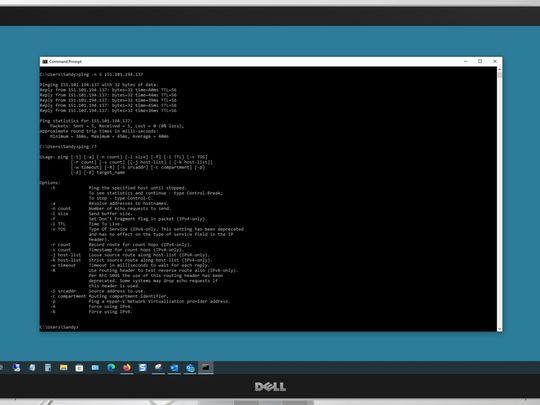
FBI Exposes Dangers of Data-Theft via 'Juice Jacking' Devices in Public Areas – Learn How to Securely Charge Your Phone

FBI Exposes Dangers of Data-Theft via ‘Juice Jacking’ Devices in Public Areas – Learn How to Securely Charge Your Phone

Vlad Teodor/Getty Images
The next time you consider using one of those free charging stations at the airport, hotel, or shopping center, it would be in your best interest to think twice. The dangers of public USB charging stations are not new -- there’s even a name tied to the act: “juice jacking,” and a product that came out of it: a USB condom . But the FBI is now making it clear that you should avoid the suspiciously free power services in your local area for good.
Also: How to use public Wi-Fi safely: 5 tips you need to know
A recent tweet from Denver FBI advises travelers, commuters, and civilians alike to avoid using free charging stations because of juice jacking. That is, with a few illegal modifications, criminals can introduce malware and surveillance software to steal your phone data as soon as you connect your device to an open port.
The number one solution to the problem is to not charge your devices through a public outlet. But, in times of need, here are alternative ways to get your battery fixed without risking your personal information.
Also: The best MagSafe battery packs we’ve tested
The first option is a portable battery bank . By serving as the middleman, an external battery can be topped up without the risk of exposing any of your data and security, and then relay that energy to your smartphone, tablet, laptop, etc.
The second option is to charge with a USB data blocker . Like the portable battery, a USB adapter serves as a middleman between your personal device and the potentially malicious outlet. It achieves such security by doing away with the data wires traditionally found on USB cables. With the accessory attached to your charging cable, it will physically block out any data transfer between the outlet and your device.
Also: Is your iPhone charging slower? Turn off this default setting now
Most data blockers, like the one we recommend above, support adaptive charging, meaning you won’t compromise on charging speed by using one. The most important thing to remember is to not plug your device directly into public outlets that you’re wary about.
Featured
Amazon Prime Day: Best 160+ deals live ahead of October’s Big Deal Days sale
I just tested the new EufyCam, and I’m never going back to grainy night vision
An anti-theft upgrade is coming to Android phones. Here’s how to see if you have it yet
You can still upgrade old PCs to Windows 11, even if Microsoft says no: Readers prove it
- Amazon Prime Day: Best 160+ deals live ahead of October’s Big Deal Days sale
- I just tested the new EufyCam, and I’m never going back to grainy night vision
- An anti-theft upgrade is coming to Android phones. Here’s how to see if you have it yet
- You can still upgrade old PCs to Windows 11, even if Microsoft says no: Readers prove it
Newsletters
ZDNET Week in Review
Too busy for a daily newsletter? ZDNET’s Week in Review delivers our editors’ picks of the week’s most important innovation and technology stories.
Subscribe
Also read:
- [New] 2024 Approved How to Create Animated Bouncing Text
- [New] Hydro-Durable Cams of the Week – #7 Edition Revealed for 2024
- [New] In 2024, Efficient Screenshot With Audio Layered
- [Updated] 2024 Approved How-To Seamless Setup of iFunny Meme Toolkit
- Correcting Driver Complications: A User-Friendly Tutorial for HP Envy 4520 Printers in Windows Environment
- Get Your Official NVIDIA GeForce RTX 지코드 (Ti) Driver - Windows 10/8/7 Compatibility
- Guide to Completely Erase Data on iPhone 12 Pro Max to Avoid Privacy Leak | Stellar
- Harnessing Hix's AI Capabilities: Leverage GPT-4 for Effortless Writing Automation
- How To Check if Your Oppo A18 Is Unlocked
- In 2024, 3uTools Virtual Location Not Working On OnePlus Ace 2V? Fix Now | Dr.fone
- In 2024, Twisting Typography in Visual Screens
- New Release: AMD's Radeon Pro W5700 Drivers for Windows Operating Systems (Windows 11/10/7)
- Razer BlackWidow Mastery: How to Flawlessly Install Latest Drivers
- Step-by-Step Tutorial for Surface Book 2 Driver Download and Update
- Updating Your AMD Graphics Card Software for Enhanced Compatibility with Windows 11/7/XP
- Windows 11 Not Recognizing My USB Device [Solved]
- Title: FBI Exposes Dangers of Data-Theft via 'Juice Jacking' Devices in Public Areas – Learn How to Securely Charge Your Phone
- Author: Richard
- Created at : 2025-02-27 01:47:23
- Updated at : 2025-03-04 16:24:59
- Link: https://hardware-updates.techidaily.com/fbi-exposes-dangers-of-data-theft-via-juice-jacking-devices-in-public-areas-learn-how-to-securely-charge-your-phone/
- License: This work is licensed under CC BY-NC-SA 4.0.